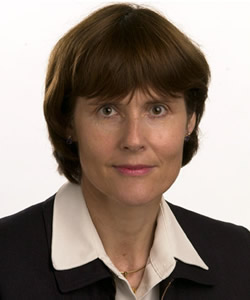
Transparency Has Momentum
By: Angela Reitmaier
June 17, 2013
New Roles for Religious Leaders: Moving on Governance and Corrupt Practices
The latest Berkley Forum discussion on roles for religious leaders in the fight for good governance and against corruption starts by arguing that the rise of Pope Francis and of Archbishop of Canterbury John Welby raises new hopes as they break stereotypes and staid expectations. I would like to add that it is not only people who are agents of change, but also new ideas and initiatives. Building on one of the ideas in the Berkley Center’s policy brief on corruption, faith communities could jump onto the bandwagon of transparency, which is currently gathering momentum in manifold initiatives.
One example is the Jubilee Assembly of the All Africa Conference of Churches (AACC), held earlier this month in Kampala, where one of the workshops covered “Good Stewardship and Transparency in the Use of Resources.” As a co-facilitator, I was asked to bring in the global perspective. From that vantage point, the message is that transparency has momentum.
At this week’s G8 summit in Northern Ireland, UK Prime Minister David Cameron will push for fairer taxes and greater transparency alongside more open trade. This push for transparency was prompted, in part, by the fact that in 2012, Nigeria’s oil exports were worth almost $100 billion, more than the total net aid to the whole of sub-Saharan Africa. Put simply: unleashing the natural resources in Africa dwarfs anything aid can achieve, and transparency is absolutely critical to that end.
The Extractive Industries Transparency Initiative (EITI) is one such important effort. While the majority of members are still from Africa, more and more developed countries are joining. Norway is host of the EITI International Secretariat and is EITI compliant. The United States announced plans to implement the initiative in 2011, and the United Kingdom and France announced the same just last month. Elsewhere, Australia is testing membership in a pilot program. Requiring companies to report what they pay to governments, governments to report what they receive, and an independent institution reconciling the numbers is at the core of this initiative. It is a distinct activity, but a crucial one. And importantly, civil society is the third player. At country level, leaders of faith-based organizations are often represented. In Nigeria, the EITI process discovered a gap of $800 million between what companies had paid and what government had received. So transparency is an important tool that can help promote the use of government resources for the benefit of citizens.
The G8 will also promote a new global standard for automatic information exchange between tax authorities to make tax evasion more difficult. Inclusion of tax havens in this standard would be important, and the United Kingdom is host to a substantial number of them. Private financial wealth sitting in tax havens amounts to $21 trillion, with $9 trillion from developing countries. An automatic information exchange might also make illicit financial flows more difficult. From Africa, these flows amounted to close to $1.4 trillion in the last 30 years (1980-2009), much more than aid to Africa, making Africa a net creditor to the rest of the world. Initiatives aimed at curbing tax evasion benefit developed and developing countries alike. Tax transparency thus matters.
The Open Government Partnership is yet another notable multilateral initiative. It aims to secure concrete commitments from governments relating to four areas, one of them being transparency. Here, information on government activities and decisions would need to be made available to the public in an open, comprehensive and timely manner and free of charge. Similar to the EITI, governments and civil society are members of its steering committee. A first African regional meeting took place at the end of May in Mombasa, Kenya.
Another area where transparency is now being actively promoted is the post-2015 agenda for the Millennium Development Goals. In a recently released report, the High Level Panel appointed by the UN secretary-general, calls for a fundamental shift—to recognize peace and good governance as core elements of well-being and as representing a universal agenda for all countries. The report also calls for a transparency revolution, enabling citizens to see where and how taxes, aid, and revenues from extractive industries are spent, and suggests separate goal for good governance, with targets for bribery and corruption. This is a major step forward from the initial MDGs, where Goal 8 “Develop a Global Partnership for Development” included as a target the further development of an open trading and financial system, and in parentheses the somewhat disjointed statement that this included a commitment to good governance, development, and poverty reduction both nationally and internationally.
It is important that citizens use the current momentum to demand transparency in their own environment. Faith communities and churches could support such initiatives, but to be effective, churches need to embrace transparency in their own affairs, as suggested in the Berkley Center’s policy brief. At the AACC workshop, participants heard a best-practice example from Dr. Festus Asana, moderator of the Presbyterian Church of Cameroon (PCC), about efforts to increase efficiency, effectiveness, transparency, and accountability in various areas of the PCC. Steps included training; professionalization of the finance departments in PCC churches, including the hiring of a hundred university graduates with degrees in finance and accounting; strict audits; and remedial actions in cases of non-compliance with financial rules. Transparency rising!
About the Author
Opens in a new window
